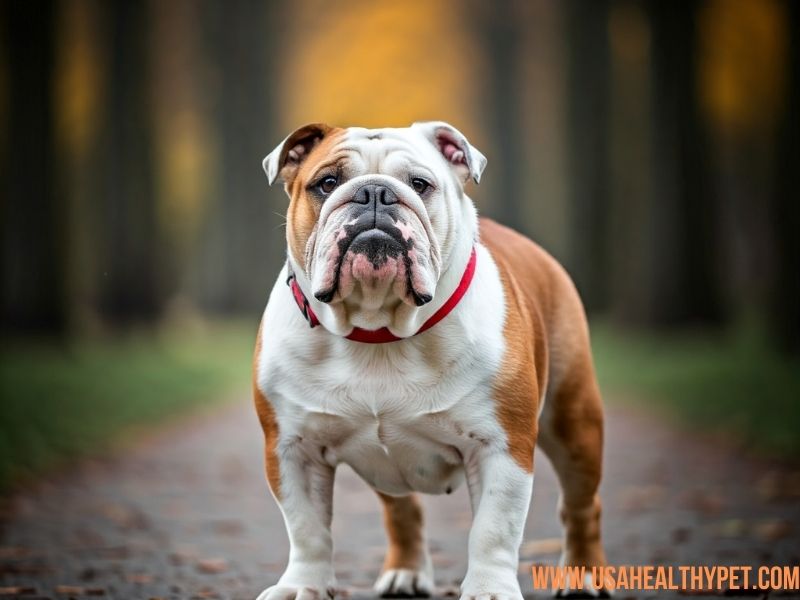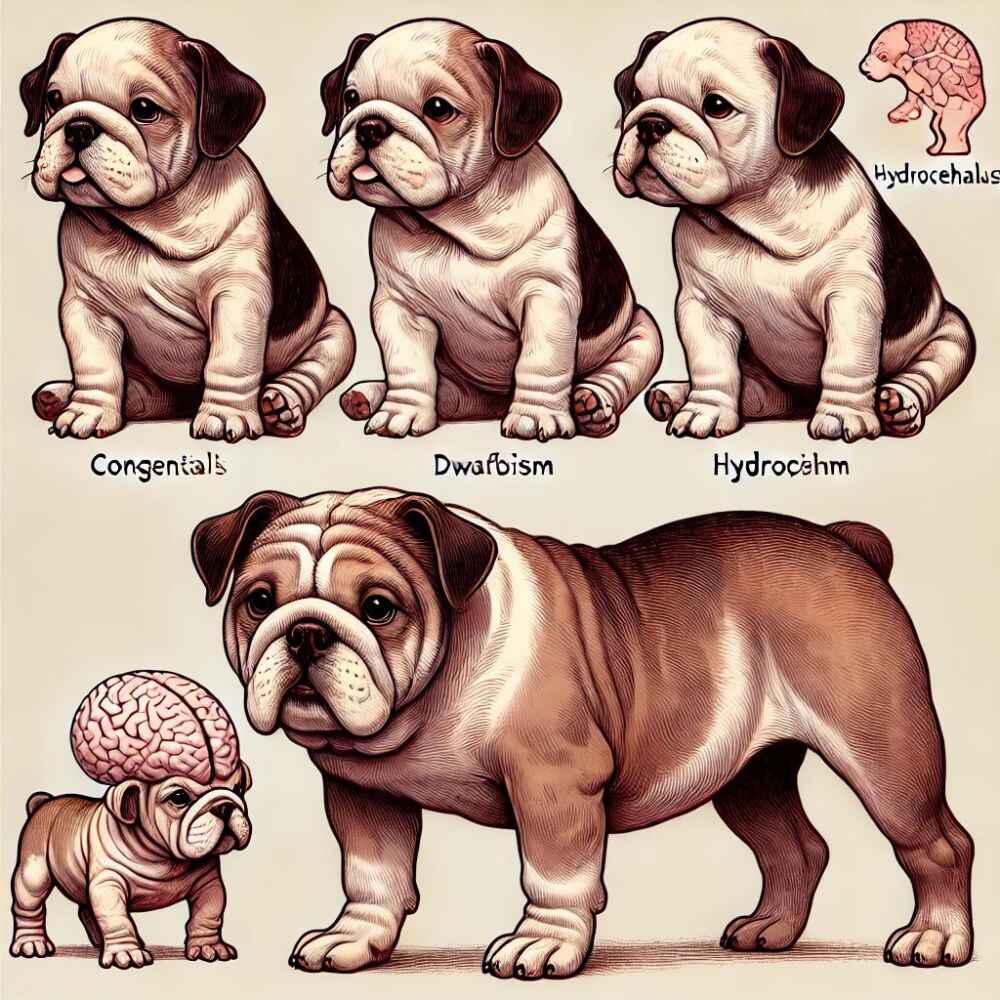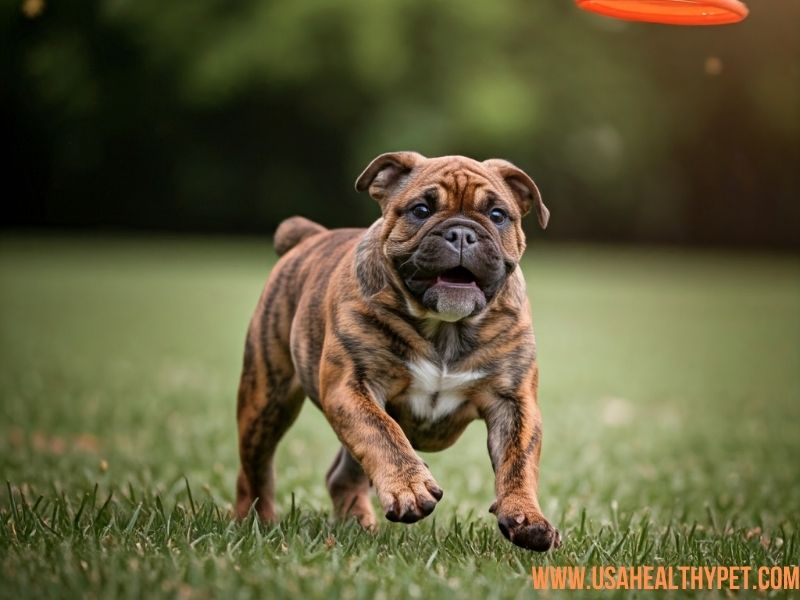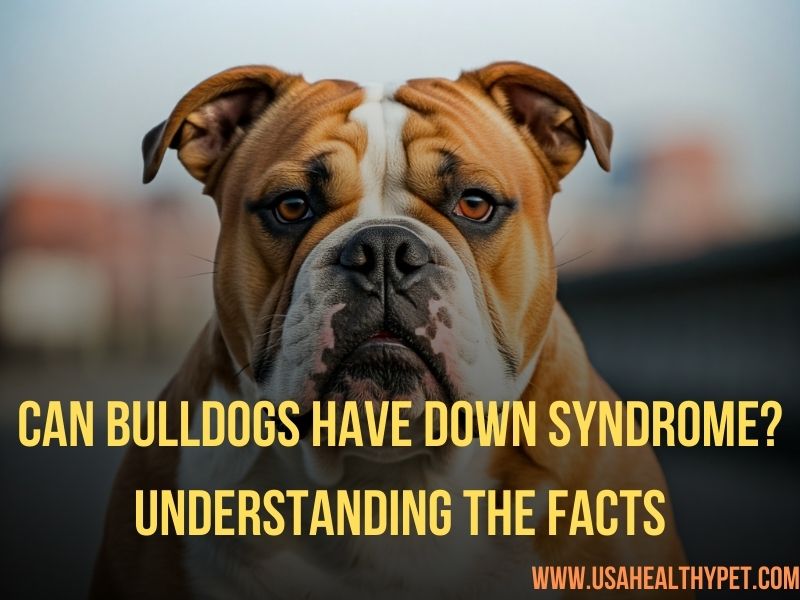Have you ever wondered if dogs, especially bulldogs, can have Down syndrome? It’s a common question on social media and pet forums.
Bulldogs, with their wrinkled faces and adorable personalities, sometimes have features or behaviors that make people think they might have this condition. But is that possible?
Let’s break it down in simple terms and find out if this is just a myth or if there’s any truth behind it.
Can Dogs Really Have Down Syndrome?
The short answer is no, dogs can’t have Down syndrome. It’s a condition that affects humans and is caused by an extra chromosome.
Humans have 23 pairs of chromosomes, and Down syndrome happens when there’s an extra copy of chromosome 21. Dogs have a different number of chromosomes—78 to be exact—so they don’t experience Down syndrome in the way humans do.
However, certain dogs, like bulldogs, may show features or behaviors that seem similar to Down syndrome. These similarities are often due to other health issues or genetic conditions, but they are not the same thing as Down syndrome.
Dr. Linda Simon, a practicing veterinarian, explain that while dogs can’t have Down syndrome, they can develop other genetic conditions that may cause similar symptoms. For instance, congenital disorders can affect a dog’s appearance and behavior, but they are entirely different from the chromosomal issue that causes Down syndrome in humans.

What Is Down Syndrome?
Before we go further, let’s explain what Down syndrome is. In people, it’s a genetic condition that happens when there’s an extra chromosome 21.
This extra chromosome changes how the body and brain develop, often leading to physical differences (like distinct facial features) and developmental delays. Some may also have other health problems, like heart defects.
Understanding Genetic Differences in Dogs
Now, dogs don’t have the same chromosomes as us, so they can’t develop Down syndrome. But, just like humans, dogs can be born with genetic disorders or developmental issues.
Some of these conditions can make a dog look or act differently, which might lead people to think their dog has Down syndrome.
For example, bulldogs, with their unique appearance and health problems, might make people wonder if something more serious is going on. But what they’re seeing is usually related to the breed’s health challenges, not Down syndrome.
Why Bulldogs Seem Like They Have Down Syndrome
So why do some bulldogs look like they might have Down syndrome? Bulldogs already have unique faces due to their breeding. Their squished noses and extra skin folds give them that classic “bulldog look.”
But sometimes, if a bulldog has other health issues, these features might appear more pronounced, leading people to think the dog has a condition like Down syndrome.
Health conditions that can look similar include:
- Congenital issues (problems present from birth) that affect how they grow or develop.
- Dwarfism, which can make their limbs and body look shorter than usual.
- Hydrocephalus, a condition where fluid builds up in the brain, causing a swollen head and neurological issues.

Common Health Issues in Bulldogs
Bulldogs are prone to several health issues because of how they’ve been bred over the years. Their short noses and wide bodies are cute, but they also bring some problems:
- Breathing difficulties: Due to their flat faces (a condition called brachycephaly), many bulldogs have trouble breathing, especially in hot weather or after exercise.
- Hip dysplasia: Bulldogs often have joint problems that can lead to limping or difficulty moving around.
- Skin infections: Those adorable wrinkles? They can trap moisture and bacteria, causing infections.
These health issues can sometimes give bulldogs an appearance or behavior that might make people think they have Down syndrome. But really, it’s just the way the breed is, or it could be another medical condition that needs attention.
Research has shown that some brachycephalic breeds like bulldogs are more prone to developmental and congenital issues. According to studies published by the American Kennel Club, bulldogs are particularly at risk for breathing problems and joint disorders. These issues don’t mean your bulldog has Down syndrome, but they do suggest that extra care is needed.
What Might Be Mistaken for Down Syndrome in Bulldogs?
People might think their bulldog has Down syndrome when they see certain signs, such as:
- Facial features that seem unusual, like a larger-than-normal head or eyes that seem wide apart.
- Slow growth or developmental delays, which might make them look or act differently compared to other dogs.
- Behavioral differences, such as being more sluggish, uncoordinated, or confused.
These signs usually point to other health conditions, like dwarfism or congenital defects, rather than Down syndrome. It’s always a good idea to consult a vet if you notice anything unusual about your dog’s appearance or behavior.
How to Care for a Bulldog with Special Needs
If your bulldog has any special needs or health issues, it’s important to give them extra care. This could mean:
- Regular vet visits to keep an eye on their health and catch any problems early.
- Feeding them a nutritious diet that supports their overall well-being.
- Giving them gentle exercise to keep their muscles strong without stressing their joints.
- Keeping their wrinkles clean to avoid skin infections. Wipe between their folds regularly!
Bulldogs, whether they have special needs or not, thrive when they’re in a loving, supportive environment.
If you’re caring for a bulldog with extra health issues, remember that your patience and attention are what will make the biggest difference in their quality of life.
Contact Your Vet:
If you’re concerned about your dog’s health, it’s always best to consult a vet. They can perform genetic tests or physical exams to identify your dog’s underlying conditions. And remember, early intervention is key!

Conclusion: Bulldogs Deserve Extra Love
At the end of the day, while your bulldog can’t have Down syndrome, they may face other health challenges that require your care and attention.
Whether they have a congenital condition, a quirky personality, or just a little extra love to give, your bulldog deserves the best. The most important thing is providing them with the care they need, keeping them comfortable, and showering them with affection.
Bulldogs, with their loyal hearts and adorable faces, are wonderful companions. By understanding their needs and health issues, you can give them the best life possible!
Disclaimer
This article is for informational purposes only and is not meant to replace veterinary advice. Always consult with a qualified veterinarian if you have concerns about your dog’s health.
FAQs
- Can bulldogs have Down syndrome?
No, bulldogs cannot have Down syndrome. However, they can have other genetic or developmental conditions that might resemble it. - What makes people think their bulldog has Down syndrome?
Bulldogs may have physical traits or behaviors due to other health issues that make them look like they have Down syndrome, but this is due to breed-specific problems, not Down syndrome itself. - What are common bulldog health problems?
Bulldogs are prone to breathing issues, hip dysplasia, skin infections, and congenital conditions like dwarfism or hydrocephalus. - How can I care for a bulldog with special needs?
Regular vet visits, a healthy diet, gentle exercise, and keeping their skin folds clean are essential in caring for a bulldog with health problems. - Should I consult a vet if my bulldog seems different?
Absolutely. If you notice any unusual behavior or physical changes, it’s always best to check with your vet for a professional opinion.
